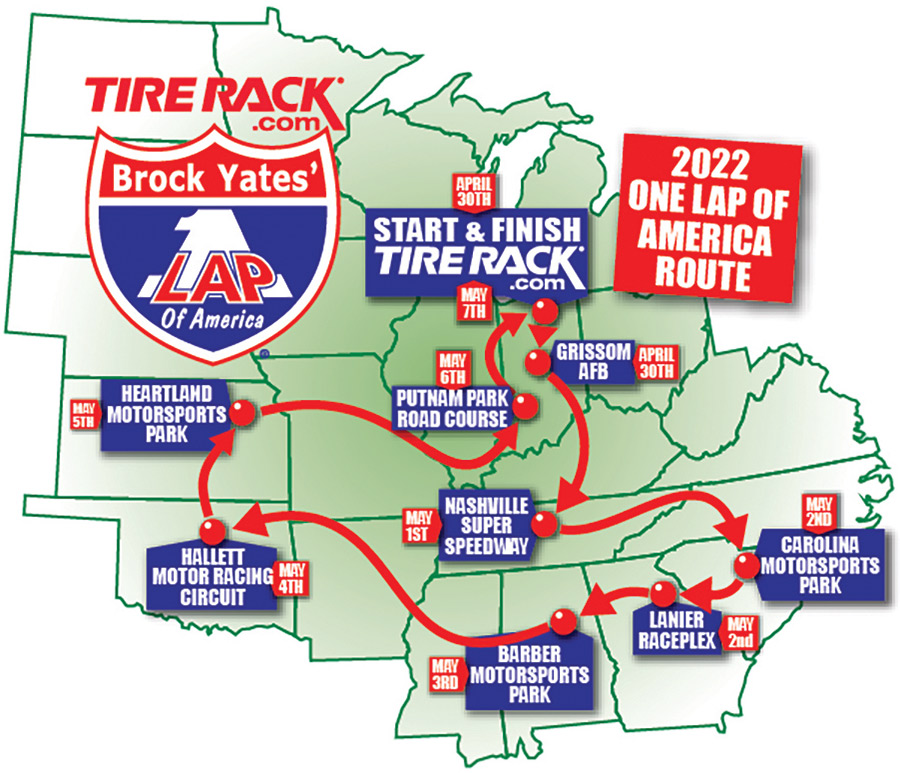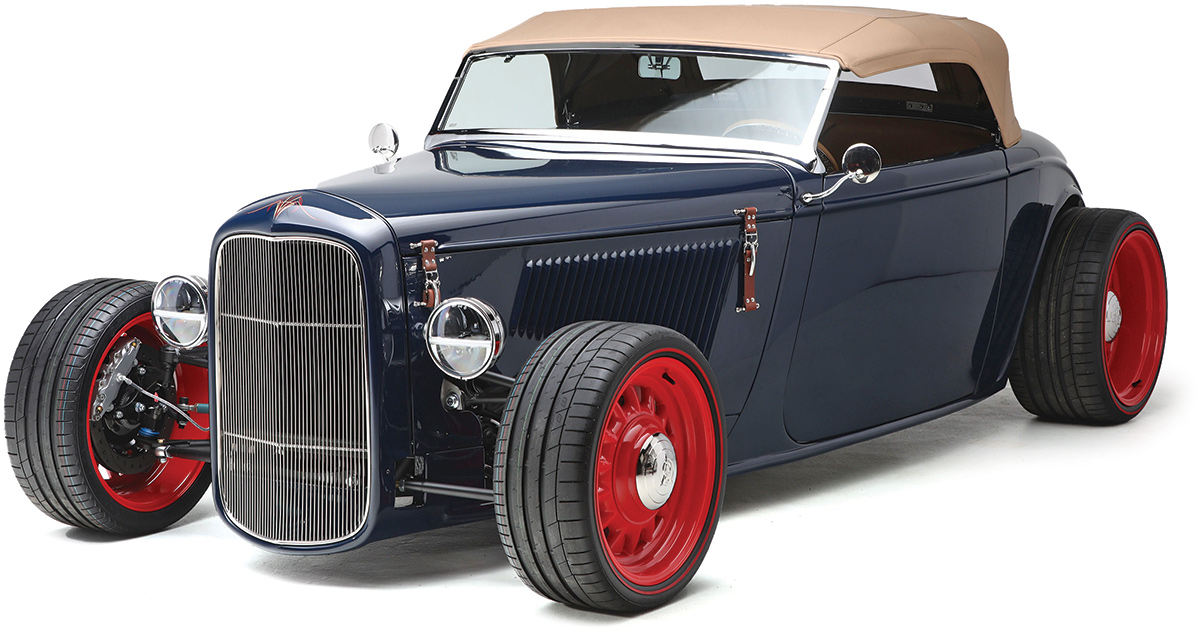 By Brian Brennan
By Brian Brennan 
 DEI Sponsors of One Lap of America
DEI Sponsors of One Lap of America
Piloting some of the world’s most advanced street cars, One Lap participants begin and end the event in South Bend, Indiana, following a circuitous route, including stops in South Carolina, Alabama, and Kansas. Over the seven days of competition, drivers will test their overall skills in a variety of challenges, including skidpad, autocross, dragstrip, racetrack, and highway transit. Teams are self-managed, have no support crews, and must start and finish on the same set of tires.
“We are excited to be a part of this annual historic event,” Will Farkas, social media and sponsorship coordinator at DEI, says. “It really is a true test of endurance and vehicle preparation, and we’ll be offering a discount on our products for all 2022 One Lap of America race teams.”
The event begins April 30 with driver registration and concludes May 8. Enthusiasts can follow along on Facebook and/or through available livestreams.
April 30: Grissom Air Force Base (Peru, IN)
May 1: Nashville Superspeedway Roval Course (Gladeville, TN)
May 2: Carolina Motorsports Park National Standard Track (Kershaw, SC)
May 2: Lanier Speedplex Oval (Braselton, GA)
May 3: Barber Motorsports Park (Birmingham, AL)
May 4: Hallett Motor Racing Circuit (Jennings, OK)
May 5: Heartland Park Grand Prix Course (Topeka, KS)
May 6: Putnam Park Road Course 10 Turn Long Course (Mount Meridian, IN)
May 7: Tire Rack Dry Skid Pad (South Bend, IN)
For more info about Brock Yates’ One Lap of America you can visit onelapofamerica.com.
 Low Volume Vehicle Manufacturers Can Fire Up!
Low Volume Vehicle Manufacturers Can Fire Up!The replica car provision is historic, creating streamlined regulatory requirements for small automakers. Replica car businesses will now be able to produce and sell turnkey replicas to eager customers nationwide.
“SEMA applauds NHTSA’s final rule allowing companies to market classic-themed cars,” Daniel Ingber, SEMA vice president of government affairs, says. “Regulatory barriers have previously prevented small automakers from producing heritage cars that are coveted by consumers. The roadblocks have been eliminated. This is a hard-fought victory for enthusiasts, small volume manufacturers, their suppliers, and all the men and women who will be hired to fill new jobs created by this law.”
The replica car law and implementing regulations allow a low volume manufacturer to construct up to 325 such replica cars a year subject to federal regulatory oversight. Replica cars resemble production vehicles manufactured at least 25 years ago—from ’30s roadsters to ’70s muscle cars and more. Until now, the U.S. had just one system for regulating automobiles, which was designed for companies that mass produce millions of vehicles. The new program recognizes the unique challenges faced by companies that produce a small number of custom cars.
The vehicles are required to meet current model year emissions standards. In 2019, the U.S. Environmental Protection Agency (EPA) issued guidelines for installing engine packages from other EPA-certified vehicles, and California Air Resources Board (CARB) issued a regulation for producing compliant engine packages. SEMA sued NHTSA in October 2019 to require the agency to issue regulations allowing the law to take effect. NHTSA issued a proposed rule in January 2020, but completion of the final rule was delayed during the presidential transition.
Low volume vehicle manufacturers must first register with NHTSA, EPA, and CARB before selling vehicles, a process that may take several months, and thereafter submit annual reports on vehicle production. Enthusiasts will still have the option to build a car from a kit, but now they may also purchase a turnkey replica car.
You can read the NHTSA’s final rule here: https://bit.ly/3JANhyc.
